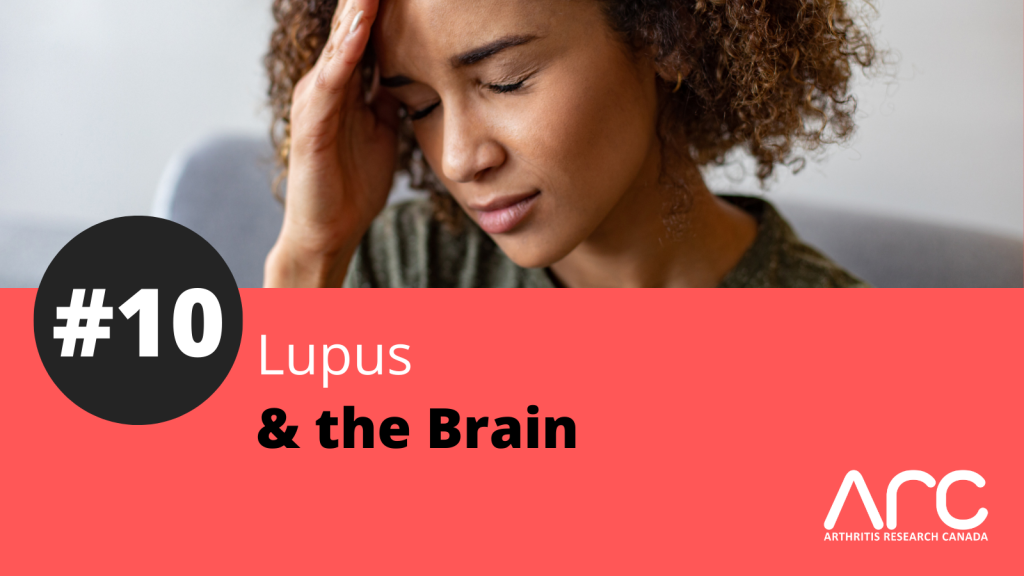
Arthritis Research Canada/Arthrite-recherche Canada’s scientific team is tackling challenges faced by over 6 million Canadians living with arthritis – challenges that can interfere with everyday life. Through 100+ research projects, they are finding ways to prevent arthritis, diagnose people earlier, manage symptoms, provide new and better treatments and improve overall quality of life. We are excited to share #10 on Arthritis Research Canada's list of 10 Research Projects to Watch in 2023 this week.
#9 Effects of Lupus on the Brain
Lupus can affect many parts of the body, including the brain, causing a wide range of neurologic and psychiatric symptoms. A common one is mild cognitive impairment that comes and goes, often referred to as “lupus brain fog”. We need a better understanding of what causes cognitive impairment in lupus and how it evolves over time, so that we can identify better treatment options.
A better understanding of what causes cognitive impairment in lupus and how it evolves is needed to identify adequate treatment options.
Using a state of the art MRI brain scan, this study will measure the leakiness of the blood-brain barrier. In general, we found in previous studies that lupus patients had more blood-brain barrier leakage than expected. We also found that the lupus patients with leakier blood-brain barriers on MRI had lower cognitive test scores when compared to those with less blood-brain barrier leakage.
Based on these findings, we believe that dysfunction of the blood-brain barrier may be a major contributor to lupus-related cognitive impairment, often referred to as “lupus brain fog”. However, we do not know what happens to the blood-brain barrier over time in lupus. Our study aims to determine whether the degree of blood-brain barrier leakage changes over time in people with lupus and whether changes in blood-brain barrier leakage will predict changes in cognitive performance.
Lupus patients who participated in a previous study will be invited to repeat their MRI scans and cognitive testing approximately five years after their initial assessment. We will then compare the MRI findings and cognitive test results between the two visits and expect that if there is an increase in blood-brain barrier leakage from the original scan, this will also be coupled with a decline in cognitive test performance. For individuals with less blood-brain barrier leakage compared to the original scan, it is anticipated they will have an improvement in their cognitive test scores over time.
Click here to learn more about this research study.